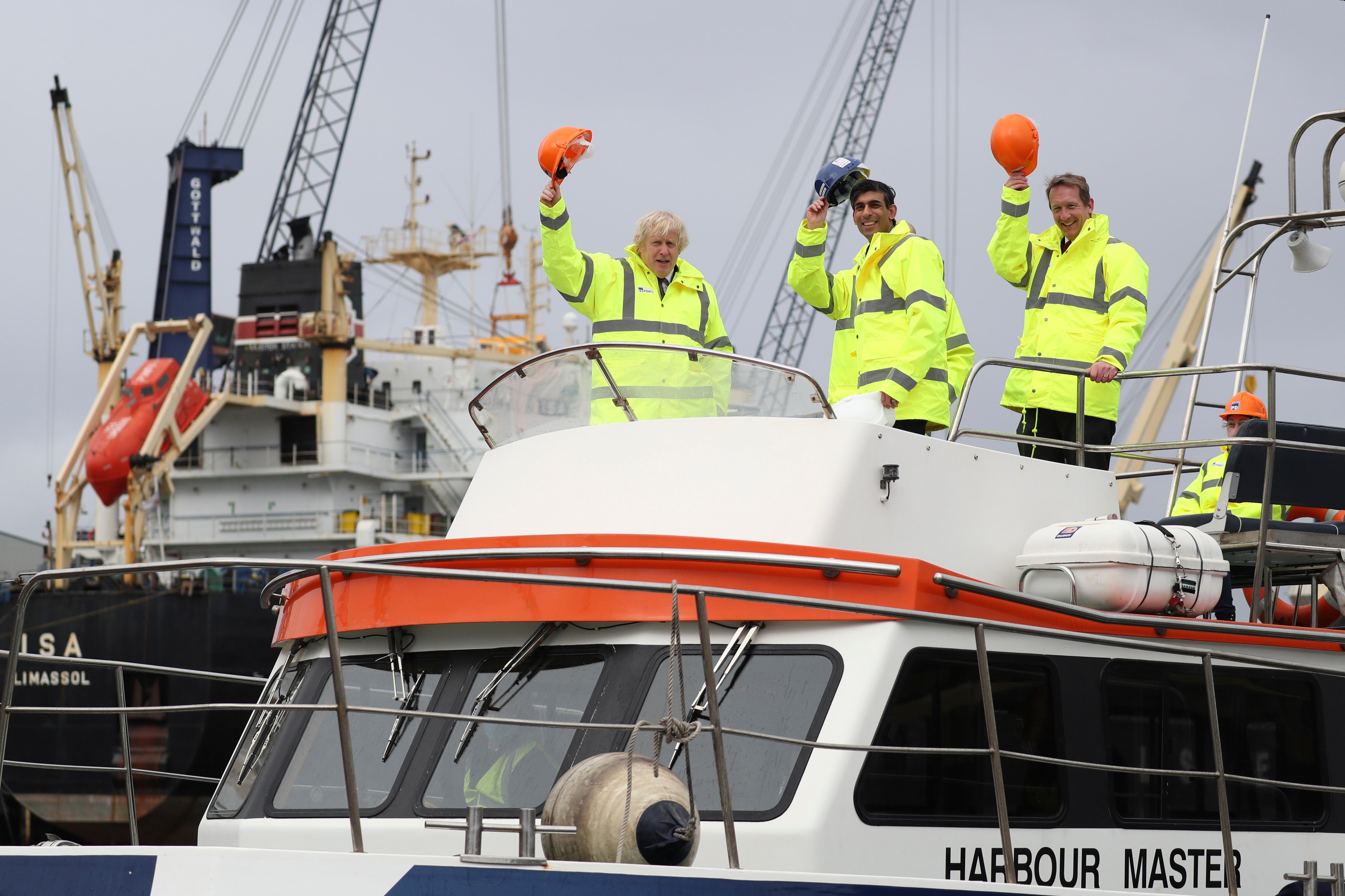Freeports of no economic benefit says Treasury watchdog, in damning verdict
Chancellor’s flagship policy will ‘alter the location rather than the volume of economic activity’, Office for Budget Responsibility concludes

Freeports will fail to boost the UK economy, the Treasury watchdog says, in a damning verdict on Rishi Sunak’s flagship policy.
Eight English ports are being granted controversial tax breaks – to “generate trade and jobs”, the chancellor has claimed – at a cost of £200m, in what has been hailed as a benefit from Brexit.
But the Office for Budget Responsibility (OBR) has dismissed the claim in its assessment of the budget and spending review, in an embarrassment to ministers.
“We have assumed that the main effect of the freeports will be to alter the location rather than the volume of economic activity,” its report says.
“So the costs have been estimated on the basis of activity being displaced from elsewhere.”
The verdict adds to criticism that the freeports open the door to corruption, the reason why the the EU is cracking down on the policy.
Freeports allow goods to be imported temporarily without tariffs, excise duties and other taxes being paid – before those goods are shipped on again.
The eight “freeports” will be created at East Midlands Airport, Felixstowe and Harwich, the Humber region, the Liverpool City Region, Plymouth, Solent, Thames and Teesside.
“The government also remains committed to establishing at least one Freeport in each of Scotland, Wales and Northern Ireland,” the Budget book reads.
In March, in his last Budget, Mr Sunak said the policy was a route to “unlocking billions of pounds of private sector investment – generating trade and jobs up and down the country”.
He also claimed they were a boost from Brexit, because the UK was constrained as an EU member – even though 7 freeports existed in the UK between the mid-1980s and 2012.
Freeports would “encourage free trade and reinforce our position as an outward looking trading nation, open to the world”, he told MPs.
But other economic experts have warned the main impact will be to relocate activity and jobs rather than create them.
The main beneficiaries would be businesses and the super-rich who took advantage of the tax breaks – while the public was left to pick up the bill for the infrastructure required, one think-tank said.
Join our commenting forum
Join thought-provoking conversations, follow other Independent readers and see their replies
Comments
Bookmark popover
Removed from bookmarks